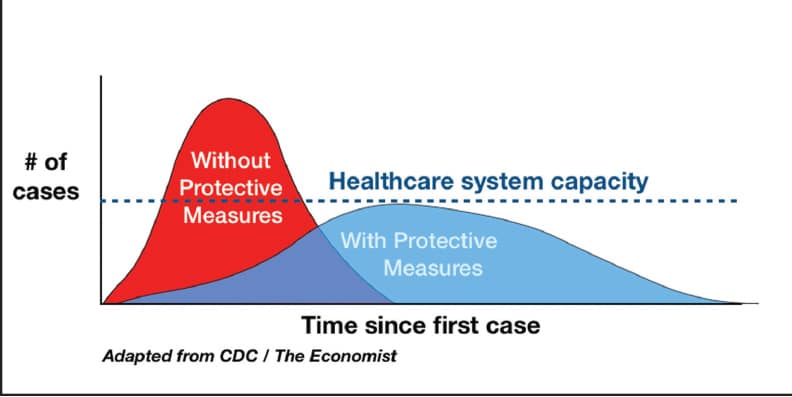Is It The Right Move?
On March 13, Gov. Edwards announced, without advance notice, that he was closing all schools in the state until April 13. Apparently he took this action because of a sudden jump in the number of confirmed cases of the coronavirus (COVID-19) in the New Orleans area two weeks after Mardi Gras. While the dangers of the COVID-19 pandemic are real and should not be taken lightly, closing all schools statewide may not have been the appropriate action to take.

In communities with a large number of confirmed cases of the coronavirus, schools should be closed. But this should be done as part of a larger community mitigation strategy because long-term school closures can have significant negative effects on children and their families.
At the time of this writing, we have 104 confirmed cases of COVID-19 in Louisiana; 89 of them are in New Orleans and Jefferson Parish; the 15 other cases are spread around the rest of the state. None have been reported in Southwest Louisiana. Based on the CDC guidance, long-term school closure would be appropriate for Jefferson Parish, but not for the rest of the state.
The coronavirus may not presently be in Southwest Louisiana, but it’s just a matter of time before it arrives here. In the army we used to say “hope for the best, but plan for the worst.” The same applies here. We need to take precautions now in order to slow the rate of transmission of the coronavirus (that is, “flatten its spread curve”) so our healthcare system is not overwhelmed by a sudden eruption of cases (see graph 1). But some of those preparations can have negative side effects that we should try to minimize or avoid.

Speaking as a septuagenarian who would like to spend a few more years on this planet, I believe our efforts should focus on both stopping the spread of the virus in the general population and preventing younger people who are not at significant risk from transmitting it to us older folks who are at great risk. Unfortunately, closing schools before it is necessary to do so does little to prevent the former and may encourage the latter.
The unanticipated announcement by Gov. Edwards closing all schools until April 13 left many parents in a quandary. There are approximately 1.1 million children in Louisiana and three-fourths of them are in families in which both parents work, or a family with a single parent who works.
Childcare is a major issue for these parents; when you announce on Friday that all schools will be closed for a month starting on Monday, what are these parents going to do? Many of them rely on schools to provide preschool or after-school care for their children as well as feed them breakfast and lunch. Moreover, in many families, after-school care is provided by an older relative, such as a grandmother or grandfather. Thus, school closure may bring children who are at little risk from the virus into contact with older people who are at great risk.
Immediately closing the schools may have been appropriate for New Orleans and Jefferson Parish, where the coronavirus is widespread in the community. But it is not appropriate for the rest of Louisiana, where the coronavirus is still rare or non-existent. The governor should limit his mandatory school closure to just one week so schools can deep-clean their facilities and make preparations such as installing hand sanitizers, automatic toilet flushers and alternatives to drinking fountains to slow the spread of the virus.
Long-term school closures should be done in coordination with local officials and provide parents sufficient time to make arrangements for child care and activities to keep their children occupied and off the streets while the schools are closed.















Comments are closed.